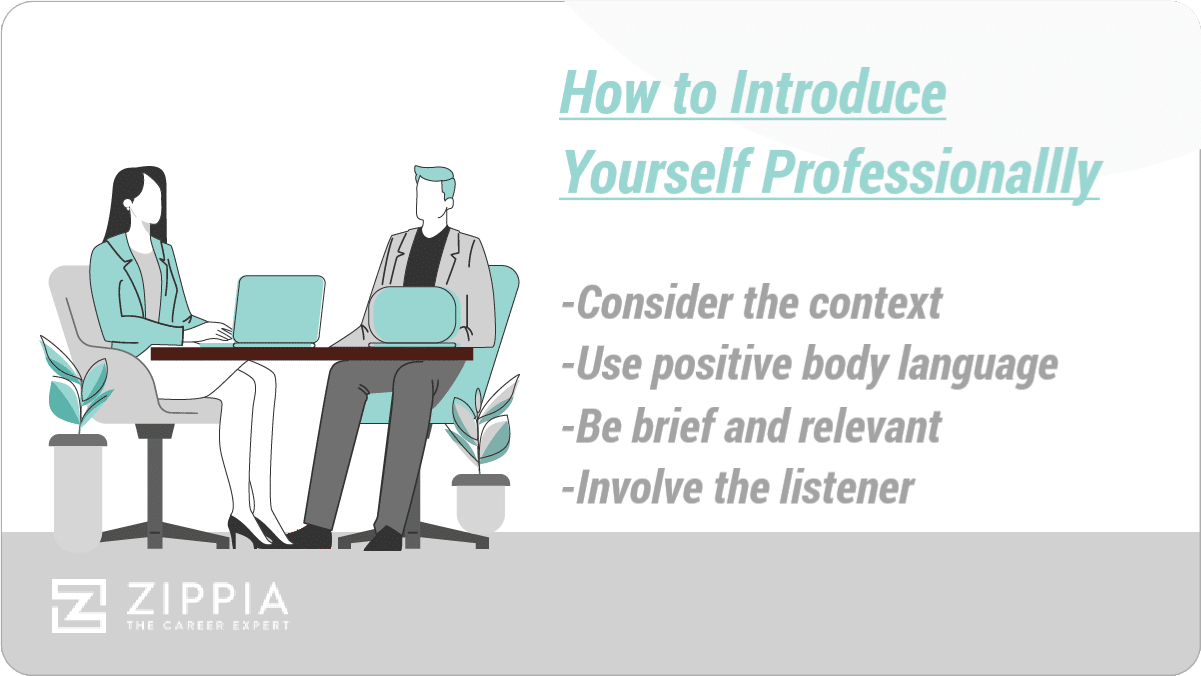- Office Etiquette
- Office Etiquette
- Dating A Coworker
- April Fools Pranks For Work
- How To Be A Good Employee
- Pet Peeves List
- How To Write A Project Proposal
- Qualities Of A Good Worker
- How To Get Along With Your Boss
- What Engaged Employees Do Differently
- What To Say Instead Of Sorry
- How To Send A Friendly Reminder Email
- How To End A Conversation
- Sorry For The Delay
- Tattoos In The Workplace
- Sorry For The Late Reply
- How To Respond To A Compliment
- How To Toot Your Own Horn
- How To Call Out Sick Even If You're Not
- How To Get Fired
- How To Decorate Your Cubicle
- Stay Awake At Work
- New Employee
- How To Introduce Yourself Professionally
- Welcome New Employee Announcement
- Welcome Letter
- Thank You Note To Colleague
- 30/60/90 Plan
- Getting To Know You Questions
- Job Satisfaction
- Team Building Activities
- At Will Employment
- Company Culture
- Corporate Culture
- How To Succeed At Your New Remote Job
- How To Prepare For New Job Orientation
- How To Create An Employee Handbook
- First Day At A New Job
- Nervous About A New Job
- Hostile Work Environment
- Hostile Work Environment
- How To Deal With A Difficult Coworker
- What Is Human Resource Development (HRD)?
- I Hate My Job
- Burnt Out At Work
- Condescending Coworker
- Sexual Harassment In The Workplace
- Work Environment
- My Job Sucks
- Favoritism At Work
- Respect In The Workplace
- Wagner Act
- Documentation In The Workplace
- Unconscious Bias
- Ageism
- What To Do When You Feel Unappreciated At Work
- How To Respond To A Warning At Work
- How To Deal With A Passive Aggressive Coworker
- What To Do When You're Unhappy At Work
- I Hate My Boss
- Gaslighting Boss
- Signs You're Underpaid
- Insubordination At Work
- Avoid Crying At Work
- What To Do When You Can't Stand Coworkers
- How To Handle A Boss That Hates You
- Dead-End Job
- How To Deal With A Difficult Boss
- How To Deal With A Micromanaging Boss
- How To Overcome A Bad Day At Work
- Missing Work
- Communicating
- Send Retirement Wishes
- Write A Congratulations Email
- Professional Voicemail Greeting Examples
- Made A Mistake At Work
- Google Tricks
- Appeal Letter
- Employee Morale
- How To Write A Professional Email
- Out Of Office Message
- Small Group Icebreakers
- Memo Format
- Memo Examples
- Cell Phone At Work
- Meeting Minutes
- Communication Barriers
- How To Take Notes
- How To Brainstorm
- Ask For A Mental Health Day
- Transfer Request Letter And Email Examples
- How To Write A Business Proposal
- How To Deal With A Lazy Coworker
- How To Write A Rejection Letter
- How To Say No
- Scheduling
- Personal Goals
- How To Avoid Distractions At Work
- What To Do When You're Overqualified For The Job
- Signs Of A Layoff
- How To Find A Mentor
- Why Don't People Like Me?
- Signs That You're A Control Freak
- Questions To Ask Yourself
- Career Development
- I Have No Idea What I'm Doing
- Bored At Work
- What Is A Digital Nomad?
- Reasons You Have No Motivation To Work
- How To Stop Selling Yourself Short
- How To Ask For A Promotion
Find a Job You Really Want In
Starting a new job can be nerve-racking and anxiety filled. It’s perfectly normal to have these feelings on your first day.
If you’re feeling this way, we have put together a few tips to help you figure out exactly how to manage your new responsibilities in this stressful period of your life.
Key Takeaways:
-
Avoiding first day jitters starts with what you do in the days leading up to your start date, all the way up to what kind of morning you have before you go in to work on your first day.
-
Before your first day you should try to get a good night’s sleep, pick out your outfit before hand, and eat breakfast.
-
It’s important to prepare your work items ahead of time, manage your expectations, and express your anxiety before going in.
-
On your first day its important to make a to-do list, start introductions early, and don’t be afraid to ask questions about the job and office.

How to Calm Nerves Before Going Into Your New Job
Here are some things you can do in the time leading up to your first day to help you shake off your nerves:
-
Get a good night’s sleep. Not technically a morning thing, but make sure you got some sleep the night before. Take a sleep aid if you’re having trouble getting sleep on your own, or if you know you have trouble falling asleep normally. It’s critical that you be as rested as possible on your first day.
-
Wake up early. If you’re stressed and are having trouble sleeping, this might be a decision your body makes on your behalf, but either way it’s good to have some extra time in the morning before you go in for your first day.
-
Wear something nice on your first day. It’s ok if you’re a little overdressed compared to the rest of the office. For one thing, it’s better to err on the side of caution when it comes to office dress codes (you can always dress more casually later on), and for another, you’re more likely to feel confident in yourself during the rest of the day if you’re dressed in a way that makes you feel good about yourself.
-
Eat breakfast. Do it, nerd. We know you “don’t normally eat breakfast.” We know you “just don’t feel hungry when you wake up.” We know you might be “too nervous.” Just eat. It is scientifically better for you to eat breakfast than to not.
And make whatever you have is something that’s high in energy and protein — you’ll thank yourself later on as your day attention starts to lag and your stomach starts to growl.
-
Prepare as much as possible. Look into your new responsibilities or a new way of completing duties you’re familiar with. If you can talk to your manager about what’s expected of you before your first day, you can start to brush up on your skills and knowledge.
Part of this step also includes completing any employment paperwork, learning the best route to the office, and preparing for conversations you know you’ll have on day one.
-
Manage your expectations. You may want to jump into your new job and immediately start adding value — that’s a great attitude, but don’t put too much pressure on yourself to start off as an expert. The first couple of weeks are a learning experience, so keep that in mind and relax, even if you don’t know everything.
-
Express your anxiety. Often, the best way to dispel anxiety is to simply talk about it with a trusted confidante. They can remind you of how awesome you are and why you earned the job in the first place.
Only speak to a positive influence in your life about these problems; otherwise, you may leave the conversation feeling worse than you began it.
If there’s nobody around to talk to, try journaling about your feelings. Your anxieties may feel a little less unresolvable once you put them down on paper and look at them objectively.
-
Plan something nice for yourself. Hey, your first day might be stressful, but be kind to yourself and plan something fun or relaxing after your first day at the new job. This will provide motivation throughout the day and help you realize that work isn’t everything.
Tips to Remain Calm While At Your New Job
Of course, even if you’ve managed to shake off your anticipatory jitters, there’s still the matter of having to work the job itself.
Sometimes the job turns out to be easy enough once you’re in it — the anticipation was the worst part, and now that you’ve started working, everything is A-OK.
Other times, the dozens of different things you end up having to do just to keep up in your new career end up overwhelming you, and you find yourself more stressed out than you’ve ever been in your life.
If this is the case for you, here are a few things you can try to help yourself stay calm once you get to work at your new job:
-
Maintain a to-do list. Keep a detailed list of your responsibilities, and execute them one-by-one — starting with the most difficult. Getting that out of the way early on in your first day will help carry you through the rest of your workday, and will give you hope as the day wears on and you find you have only your easier problems left to deal with.
-
Introduce yourself immediately. Reach out to your co-workers early on. Go to some kind of lunch or happy hour with your co-workers as soon as possible.
This is something you can schedule (or even do) on your very first day pretty easily, and odds are someone in the office will be willing to take some time out of their day to get to know the newbie. It’ll help you get a feel for the office dynamic, and someone who’s worked there for a bit might have some pointers to help keep you from making common first-time mistakes.
-
Start remembering names early on. You want people to like you, and nothing makes people like you sooner than to learn their name as soon as possible after meeting them.
Repeat their name as often as you can while talking to them (without being too weird about it), and if you can, try writing down your coworker’s names somewhere. Even if you throw away the paper, writing things down is proven to help people retain information.
-
Ask questions. You’re going to have a lot of questions during your first couple of weeks on the job — don’t be afraid to speak up when you’re confused or need guidance. Jot down questions as you run into problems so that you can discuss them with someone afterward. And if you’re being trained, ask questions as they arise.
Don’t worry about appearing ignorant. Your new employer wants you to have all the knowledge and resources you need to complete your tasks, so they’ll certainly encourage questions that help you succeed.
-
Make a good first impression. Contrary to (possibly) popular belief, the best way to win over your coworkers isn’t to impress them with your professional expertise.
It’s really all about getting to know your new comrades by asking them questions about themselves, both professional and personal (just keep it appropriate). People like to talk about themselves — give your coworker’s the opportunity to do that, and they’ll associate you with positive feelings.
Why Are You Nervous About a New Job?
-
Introverts out there are certainly imploding on sight at the question in the title of this section, but there are some people out there who truly don’t see what the big deal is when it comes to working someplace new.
People like this — extroverts, typically — love the chance to put themselves in new situations, challenge themselves, meet new people, and explore their own capabilities by utilizing those skills in the context of a different job or company.
-
Most people out there experience at least some trepidation when it comes to a new work situation, so odds are you’ll meet at least one person out there who can sympathize with your nervousness.
-
The fact is that a new job always comes with a host of new variables that can make any sense of comfort feel incredibly remote. All that stuff you either learned at your last job or have been slowly putting together in theory during your time at school?
All of a sudden, you have to figure out how to make it useful in a very real way, in a career that you may know very little about.
-
And in the event thatyour new job functions relatively (or even completely) similarly to your last one, you’re still in a brand new company with brand new people, and it’s essential that you (quickly) figure out how things work here.
But to do that, you’ve got to be clear-eyed, calm, and not so paralyzed by nervousness that you’re incapable of getting used to your new job.
Final Thoughts
That’s all for this one! Just keep in mind: Whatever you do, try to manage your expectations.
No one expects you to do perfectly on your first day — being new, there are things you just can’t know.
If nothing else, you’ve got at least a good month or two before anyone starts to judge you personally based on your work performance. Anything before that point, they’re likely to write off as you being a newbie.
You’re expected to pick things up, but in your early days at your new job, there’s no shame in asking for a lot of help. Don’t make others do your own work, obviously, but as far as it goes concerning how to actually do that work, any question you have is fair game at this point.
Just don’t let yourself fall early on into a hole that you’re never able to dig yourself out of just because you’re too worried or proud to reach out for a little extra assistance.
- Office Etiquette
- Office Etiquette
- Dating A Coworker
- April Fools Pranks For Work
- How To Be A Good Employee
- Pet Peeves List
- How To Write A Project Proposal
- Qualities Of A Good Worker
- How To Get Along With Your Boss
- What Engaged Employees Do Differently
- What To Say Instead Of Sorry
- How To Send A Friendly Reminder Email
- How To End A Conversation
- Sorry For The Delay
- Tattoos In The Workplace
- Sorry For The Late Reply
- How To Respond To A Compliment
- How To Toot Your Own Horn
- How To Call Out Sick Even If You're Not
- How To Get Fired
- How To Decorate Your Cubicle
- Stay Awake At Work
- New Employee
- How To Introduce Yourself Professionally
- Welcome New Employee Announcement
- Welcome Letter
- Thank You Note To Colleague
- 30/60/90 Plan
- Getting To Know You Questions
- Job Satisfaction
- Team Building Activities
- At Will Employment
- Company Culture
- Corporate Culture
- How To Succeed At Your New Remote Job
- How To Prepare For New Job Orientation
- How To Create An Employee Handbook
- First Day At A New Job
- Nervous About A New Job
- Hostile Work Environment
- Hostile Work Environment
- How To Deal With A Difficult Coworker
- What Is Human Resource Development (HRD)?
- I Hate My Job
- Burnt Out At Work
- Condescending Coworker
- Sexual Harassment In The Workplace
- Work Environment
- My Job Sucks
- Favoritism At Work
- Respect In The Workplace
- Wagner Act
- Documentation In The Workplace
- Unconscious Bias
- Ageism
- What To Do When You Feel Unappreciated At Work
- How To Respond To A Warning At Work
- How To Deal With A Passive Aggressive Coworker
- What To Do When You're Unhappy At Work
- I Hate My Boss
- Gaslighting Boss
- Signs You're Underpaid
- Insubordination At Work
- Avoid Crying At Work
- What To Do When You Can't Stand Coworkers
- How To Handle A Boss That Hates You
- Dead-End Job
- How To Deal With A Difficult Boss
- How To Deal With A Micromanaging Boss
- How To Overcome A Bad Day At Work
- Missing Work
- Communicating
- Send Retirement Wishes
- Write A Congratulations Email
- Professional Voicemail Greeting Examples
- Made A Mistake At Work
- Google Tricks
- Appeal Letter
- Employee Morale
- How To Write A Professional Email
- Out Of Office Message
- Small Group Icebreakers
- Memo Format
- Memo Examples
- Cell Phone At Work
- Meeting Minutes
- Communication Barriers
- How To Take Notes
- How To Brainstorm
- Ask For A Mental Health Day
- Transfer Request Letter And Email Examples
- How To Write A Business Proposal
- How To Deal With A Lazy Coworker
- How To Write A Rejection Letter
- How To Say No
- Scheduling
- Personal Goals
- How To Avoid Distractions At Work
- What To Do When You're Overqualified For The Job
- Signs Of A Layoff
- How To Find A Mentor
- Why Don't People Like Me?
- Signs That You're A Control Freak
- Questions To Ask Yourself
- Career Development
- I Have No Idea What I'm Doing
- Bored At Work
- What Is A Digital Nomad?
- Reasons You Have No Motivation To Work
- How To Stop Selling Yourself Short
- How To Ask For A Promotion





